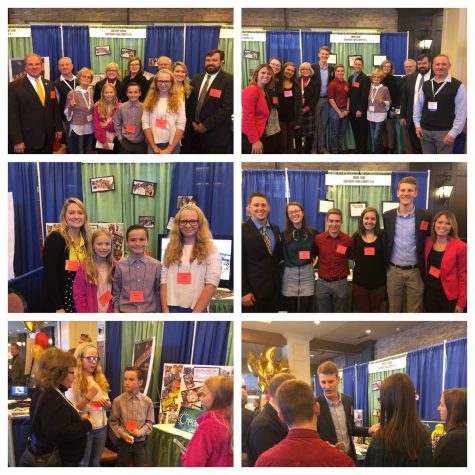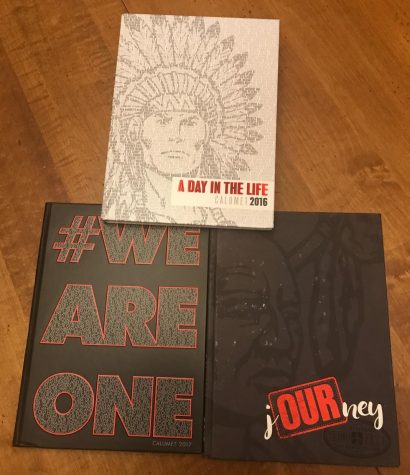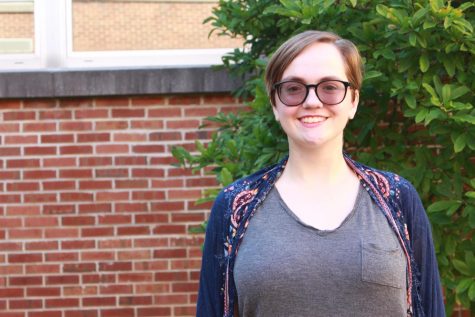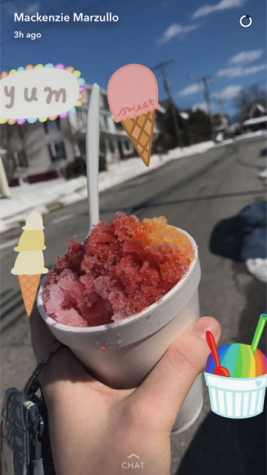Specialty Courses Offer Unique Experiences
November 14, 2018
More alternative and specialty style classes, like Think Tank, Yearbook and Digital Media, are addressing ideas outside of the normal curriculum.
Across the courses, the common factor is the focus on projects, developing professional skills.
Think Tank, for example, works to solve real-life problems in and outside of the school; subjects of interest include the heroin epidemic, Pennsylvania Department of Transportation work zones and internal school issues like aesthetics and seating.

Photo courtesy of Sandy Lemmon via Twitter.
Senior Greyson Daviau appreciates the community interactions Think Tank provides and business contacts that foster preparation for the real world.
“You can make it what you want,” said Daviau. “And it’s also like not a lot of lecture; it’s very hands-on and…it just feels very realistic…like my PennDOT project, I feel like if I worked for PennDOT, this is a realistic project they could give me.”
Daviau feels that specialty classes help students feel more prepared for their goals past high school.
“I want to go into business, and so it tackles a bunch of the essentials of having a business and communicating with people,” said Daviau.
Senior Ryann Kitchell is a part of Yearbook and finds the classroom style rather different than a typical English credit.
“Most classes, it’s a lot of listening to a teacher and taking notes, and eventually you have a test or a quiz on what you’re talking about in class, but, we just make our pages and that really is all our grade is,” said Kitchell.
The work is more hands-on in these classes than what students are used to seeing, and Daviau considers it a way to make kids more invested in what they do.

Photograph by Camryn Brakmann
“I think students tend to get more out of it than what they do in the…more traditional subject classes. I just feel like it’s more clear of how it can actually apply to their life, opposed to a lot of kids will ask the teacher ‘why are we doing this? When am I ever going to use this in my life?’ but I feel like with this class it’s like so clear…so kids get really passionate about what they’re doing and actually take ownership,” said Daviau.
Yearbook advisor Jessica Beste also sees how students take more initiative in these classes and appreciates how they prepare them for things they would see in an actual job.
“Yearbook is different because it allows the student to take ownership of a product that not only is for our student body but also for our community,” said Beste. “They work hand in hand with a business where they have deadlines and expectations outside just the regular academic classroom setting…You’re working on multiple things at one time, and for me that’s reality. Like, as a teacher, I can’t just sit and work on one thing and wait until that’s done.”
Beste functions more like a boss to her students than an actual teacher, letting them take the reigns; a large portion of the weight is put onto the students, pushing them to develop keen communication and collaboration skills outside of their comfort zones.
Sophomore Reagan Gorham was a part of the Courier last year through the Digital Media course and was able to take away new technical skills beyond time management, too.
“Being a part of the Courier helped prepare me for adulthood and life after high school by teaching me the importance of meeting deadlines…and it exposed me a lot to video editing, which I didn’t have much experience with beforehand, so that was a good skill to learn as well,” said Gorham.
All of these specialty courses pave a way for leadership throughout the school, and many people see the benefit of creating more similar programs that build a more exciting academic environment or help individuals find what they are passionate about.




